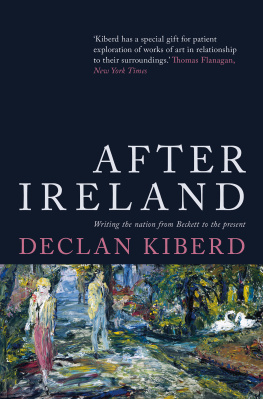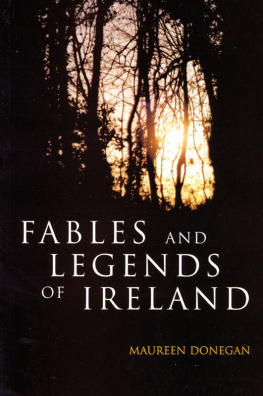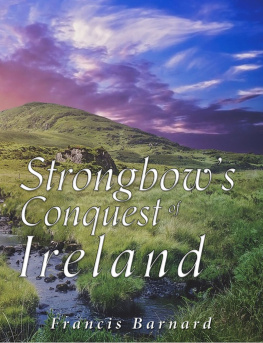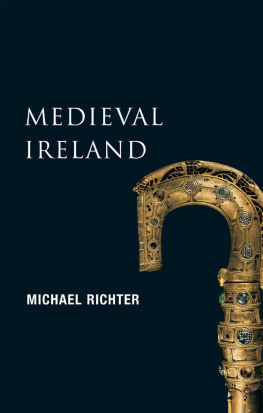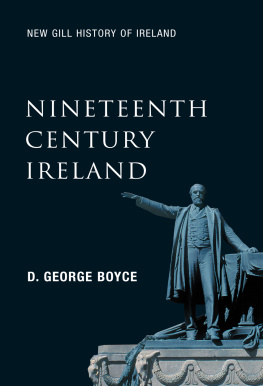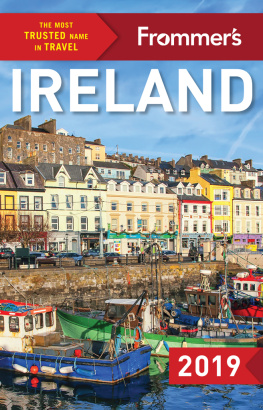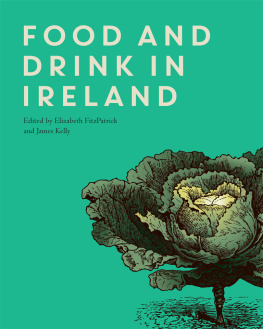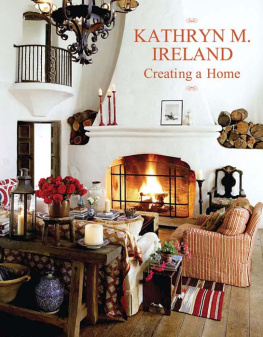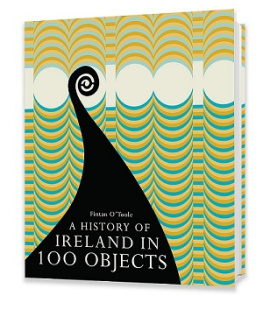Kiberd - After Ireland
Here you can read online Kiberd - After Ireland full text of the book (entire story) in english for free. Download pdf and epub, get meaning, cover and reviews about this ebook. year: 2017, publisher: Head of Zeus, genre: Art. Description of the work, (preface) as well as reviews are available. Best literature library LitArk.com created for fans of good reading and offers a wide selection of genres:
Romance novel
Science fiction
Adventure
Detective
Science
History
Home and family
Prose
Art
Politics
Computer
Non-fiction
Religion
Business
Children
Humor
Choose a favorite category and find really read worthwhile books. Enjoy immersion in the world of imagination, feel the emotions of the characters or learn something new for yourself, make an fascinating discovery.
After Ireland: summary, description and annotation
We offer to read an annotation, description, summary or preface (depends on what the author of the book "After Ireland" wrote himself). If you haven't found the necessary information about the book — write in the comments, we will try to find it.
After Ireland — read online for free the complete book (whole text) full work
Below is the text of the book, divided by pages. System saving the place of the last page read, allows you to conveniently read the book "After Ireland" online for free, without having to search again every time where you left off. Put a bookmark, and you can go to the page where you finished reading at any time.
Font size:
Interval:
Bookmark:

AFTER IRELAND
Declan Kiberd
www.headofzeus.com
 |
Ireland is suffering a crisis of authority. Catholic Church scandals, political corruption, and economic collapse have shaken the Irish peoples faith in their institutions. The nations struggle for independence is thrown into doubt. But, as Declan Kiberd argues in this engaging survey of post-war Irish literature, the country's creative writers have been alert to this reality from the start.
He describes the young Samuel Beckett witnessing the burning of Dublin in 1916 and realising that the birth of a nation might also seal its doom. Surveying thirty works by modern Irish writers, Kiberd traces the response to the crisis of Irish Statehood in the work of Seamus Heaney, Edna O'Brien, Joseph OConnor, Tom Murphy, Nuala N Dhomhnaill, Derek Mahon and John Banville, among others. Placing these writers at the centre of Irelands on-going exploration of the true meaning of freedom, Kiberd shows how Irish artists preserve and extend a humane culture that imagines a renewed, more plural and open nation.
Kiberds Inventing Ireland, originally published in 1995 is a dazzlingly ambitious critical history of modern Irish literature and the standard work on the Irish Literary Revival. In After Ireland, Kiberd responds to the next generation of Irish writers, in this second renaissance of Irish literature.
I ndil-chuimhne ar mo mhthair Eithne 19152010
After Ireland is the third volume of a trilogy that began with Inventing Ireland and continued with Irish Classics. Inventing Ireland had as its main focus the authors of the Irish Revival 18851940 (with some treatment of appropriate texts from the postlude). Irish Classics dealt with classic authors who wrote in both the Irish and English languages from the crisis of Gaelic Ireland in 1600, through the eighteenth and nineteenth centuries, down to the period of high modernism. After Ireland begins with a reading of a work from the mid-century, Becketts Waiting for Godot, and brings the story up to the present moment.
It has a central contention: that the birth of the new state signalled the slow end of the national project and that this decline (always a worry, especially to writers of northern background) became conclusive in the years following the economic crash of 2008. The available forms of the state proved unable to contain or embody the very idealistic ambitions of the nation. Yet, as political hopes of sovereignty were annulled, culture became in many ways more important than ever, as a means of alerting people to the crisis and of embodying the unstilled longing for expressive freedom.
The gradual expiry of the national project has been chronicled in a range of powerful works, which address major questions: the fortunes of the native language and of religious institutions, the conflict in the north, secularization and womens rights, political and economic sovereignty. There are many fine writers who explore these themes, but I have chosen to focus on certain texts in which the issues are centrally raised. Many other works by writers treated here and by other major authors could have been included, but I hope to return to these on another occasion. Over the past two decades, students have taught me to read and re-read texts as an early warning system concerning problems which became obvious in journalism of more recent times, but also as a sort of elegy for the invented Ireland of the Revivalists and Classicists.
The intention was not to rebut or withdraw the theses of the two earlier volumes, but to sharpen their analysis of culture as the site and stake of the search for expressive freedom. The national project has gone through many moments of despondency and near-death experiences, as was shown in Irish Classics the Flight of the Earls in 1607, the defeat at Aughrim in 1691, the Union with Britain in 1801, the Great Hunger of the 1840s and the waves of emigration thereafter but in the past it has always survived in new modes of self-assertion. The inventors of Revival Ireland confronted similar fears that it would disappear, under the blandishments of parliament at Westminster or in the trenches of the Somme or in the fires of civil war: yet somehow, on each occasion, a phoenix arose from the ashes.
Since independence, there have been various crises of the Free State and Republic censorship of intellectuals, economic stagnation, further emigration and an apparent reluctance to marry among many who remained. This is not to mention the very different existential crises triggered by the Second World War, by the Troubles in the North, and by the widespread fear at the end of the century that the most globalized country in Europe had lost its identity. None of the writers considered here has ever announced the final failure of the national project, but many have believed that (to borrow a phrase of Salman Rushdie) their country had been insufficiently imagined. Their writings have been often inspired by their critique of these derelictions and by their impatience with many forms of traditional nationalism. Like the texts produced by Revivalists, their work offered not only a strict diagnosis but also vital hints of a way forward. In its more familiar guises the national project might be ebbing: but the account of an ending (as was shown in Irish Classics ) always contains within itself the narrative of a new dispensation. Emergency is not an ignoble condition: it may even be the state of mind in which every postcolonial people has to live.
*
I am grateful to many students and colleagues who led me through the discussions that follow, whether at University College Dublin or at the University of Notre Dame, at Sorbonne 3 or at Cambridge University: P. J. Mathews, Derek Hand, Noreen Doody, Jarlath Killeen, Wanda Balzano, Zeljka Doljanin, Stanley van der Ziel, Graham Price, Jana Fischerova, Jeff Holdridge, Malcolm Sen, Katherine OCallaghan, Enrico Terrinoni, Chiara Lucarelli, Diana Perez Garcia, Heather Laird, Ron Callan, Brendan Kennelly, John Kerrigan, Paddy Ward, Brian Donnelly, Tony Roche, Frank McGuinness, Christopher Fox, Kevin Whelan, Barry McCrea, Jill Wharton, Dan Murphy, Guinn Batten, Oonagh Young, Christine Breen, Alan Graham, Aoife Lynch, Catherine Wilsdon, Andrea Binelli, Carle Bonafous-Murat, Fergal Casey, Brona NicDhiarmada, Diarmuid Giollin, Mary OCallaghan, Sarah McKibben, Brian Conchubhair, Niall McArdle, Nathaniel Myers, Ailbhe Darcy, Kara Donnelly, Lindsay Haney, Ray Ryan, Rnn McDonald, David Clare, Nelson Ceallaigh Ritschel, Fearghal Whelan, and John Sitter. I owe major debts to my translators Futoshi Sakauchi and Gerardo Gambolini for wonderful discussion and comradeship. My dead friends Edward Said, John McGahern and Brian Friel gave many kinds of guidance as well as inspiration. I must thank Sen Mrdha, Vivien Igoe, Edna OBrien, Joseph OConnor, Robert Ballagh, Richard Kearney, Lucy McDiarmid, Bernadette Comerford, Stephen Rea, Fiach Mac Conghail, Aideen Howard, Aedn Clements, Lyn Grimes, Alan Tongue, Barry McGovern, Theo Dorgan, Paula Meehan, Eilan N Chuilleanin, Harry Clifton, Gary Murphy, Gabriel Fitzmaurice and Dillon Johnston for the privilege of working with them on many projects. I am grateful to Kevin Whelan for welcoming me to OConnell House and for making it a centre of friendship and scholarly endeavour.
This is not the first occasion on which I thank Mire Doyle for immense assistance, both scholarly and technical, in the production of a text. The kindness of Lisa Caulfield and her colleagues at University of Notre Dame has been unfailing. To Neil Belton, Ellen Parnavelas and Clmence Jacquinet at Head of Zeus, to Stephen Gilbert, and to Lindsay Waters and Joy Deng at Harvard University Press goes my appreciation for their work in taking on and much improving this text, as they did with its predecessors. My debt to Neil goes back many decades: without his encouragement and kindness, I would not have written this trilogy. Years of friendship, great fun and wise counsel mean that I should, once again, thank President Michael D. Higgins and his wife, Sabina; they will disagree with much of what follows but understand, I trust, why it is necessary to say it: pessimism of the intellect, optimism of the will. I am deeply grateful to my brother Damian Kiberd for his illuminating commentaries on the Irish economy; and to my sister Marguerite Lynch for her analyses of many of the themes covered in these pages.
Font size:
Interval:
Bookmark:
Similar books «After Ireland»
Look at similar books to After Ireland. We have selected literature similar in name and meaning in the hope of providing readers with more options to find new, interesting, not yet read works.
Discussion, reviews of the book After Ireland and just readers' own opinions. Leave your comments, write what you think about the work, its meaning or the main characters. Specify what exactly you liked and what you didn't like, and why you think so.

